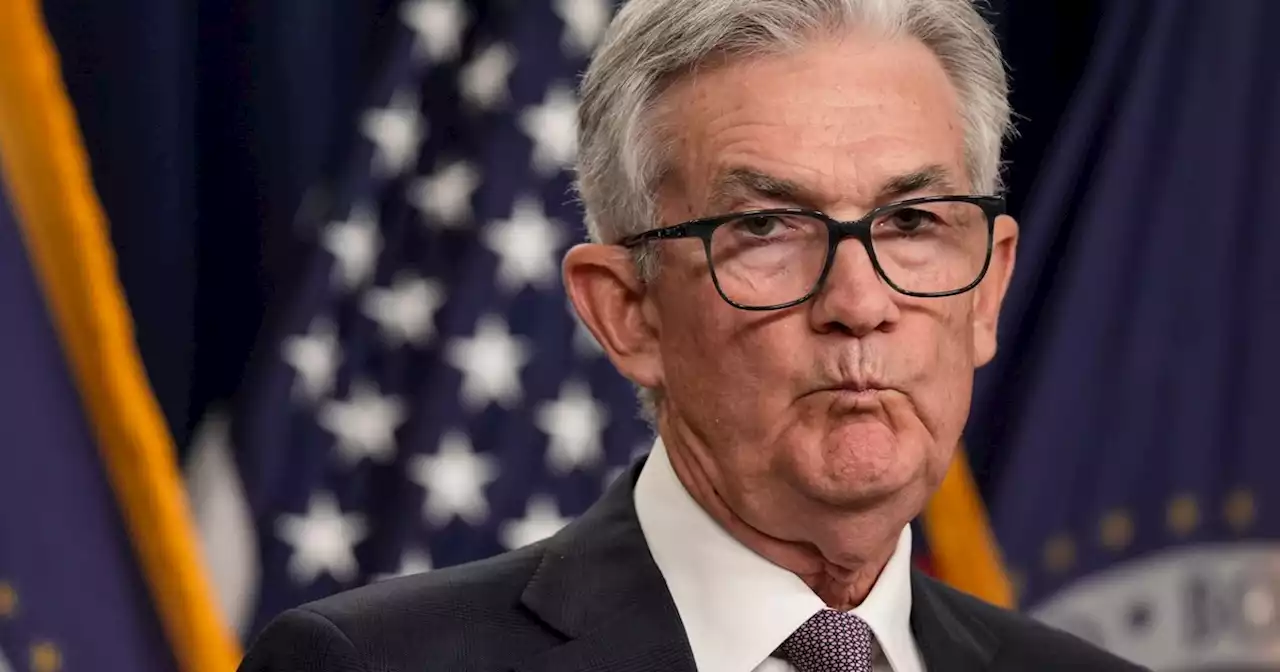The Federal Reserve is hiking interest rates at the most forceful pace in decades but has seen limited progress so far.
rose 8.2 percent compared with the year before, and 0.4 percent compared with August, more than analysts’ expectations. Core inflation, a measure closely watched by the Fed that strips out more volatile categories such as food and energy, also came in hot.A major question is whether prices can be tamed with rate hikes alone. The Fed’s decisions can’t fix certain sources of inflation, like bungled supply chains, worker shortages or Russia’s war in Ukraine.
In Lansing, Mich., Jerry’s Automotive is still having issues getting enough engines and transmissions in stock. Owner Chris Luoma said he can only absorb so many costs, and he tries to be honest with customers about the supply chain issues that have long dogged the car market, saying that “you’ve got to stay open, stay in business and pay the bills.
and they often didn’t want to hunt for a new car. The shop has been around for over 50 years, and Luoma hopes it’ll make it through the uncertainty ahead. People always need their cars fixed, after all.“While a recession might make us step back and think...we’ve seen peaks and valleys with the economy,” Luoma said. “And we’ve always managed to be okay.”
With the latest batch of inflation data, analysts and Fed officials are likely to pay special attention to rental costs, which make up a large portion of what economists refer to as the “basket of goods” used to calculate what’s known as the consumer price index. So far, rents are showing little improvement. Rent costs rose 0.8 percent in September, up slightly from the previous two months. It was also up 7.2 percent in the past year, marking the largest increase since 1982.
But the hope is that, eventually, a major slowing in the housing market will pull rental costs down, too. The housing market is the main part of the economy that has responded to the Fed’s rate hikes, sinceare especially sensitive to the central bank’s decisions. The average rate for a 30-year fixed mortgage, the most popular home-loan product, reached 7.08 percent in late October, causing more prospective buyers to bow out of the market.
United States Latest News, United States Headlines
Similar News:You can also read news stories similar to this one that we have collected from other news sources.
 You're going to see cheaper used car prices in the coming monthsUsed car prices are down over 15% since they peaked in January at an average of nearly $24,000.
You're going to see cheaper used car prices in the coming monthsUsed car prices are down over 15% since they peaked in January at an average of nearly $24,000.
Read more »
 History As It Happens: When Volcker RuledIn the late 1970s, the national mood was dark. In the words of President Carter, Americans faced a 'crisis of confidence.' Inflation reached double digits. Stagflation entered the lexicon. An OPEC price increase led to an energy crisis. And there was the Iran hostage fiasco of 1979. As his presidency strained to regain its footing, Carter made an appointment that would leave a lasting mark on history. He picked Paul Volcker to lead the Federal Reserve. Volcker took up his new post by taking a sledgehammer to inflation, sending interest rates soaring above 20 percent and tipping the economy into recession in the election year of 1980. Volcker’s policies loom large today as Federal Reserve chairman Jay Powell struggles to curb the worst inflation since the early 1980s. In this episode, economist and Volcker biographer William Silber talks about the towering legacy of the Federal Reserve chairman, as well as the historical lessons Powell might heed.
History As It Happens: When Volcker RuledIn the late 1970s, the national mood was dark. In the words of President Carter, Americans faced a 'crisis of confidence.' Inflation reached double digits. Stagflation entered the lexicon. An OPEC price increase led to an energy crisis. And there was the Iran hostage fiasco of 1979. As his presidency strained to regain its footing, Carter made an appointment that would leave a lasting mark on history. He picked Paul Volcker to lead the Federal Reserve. Volcker took up his new post by taking a sledgehammer to inflation, sending interest rates soaring above 20 percent and tipping the economy into recession in the election year of 1980. Volcker’s policies loom large today as Federal Reserve chairman Jay Powell struggles to curb the worst inflation since the early 1980s. In this episode, economist and Volcker biographer William Silber talks about the towering legacy of the Federal Reserve chairman, as well as the historical lessons Powell might heed.
Read more »
 Credit card interest rates hit record highThe new high coincides with the Federal Reserve raising its key federal funds rate to a level not seen in more than a decade as it fights persistent inflation.
Credit card interest rates hit record highThe new high coincides with the Federal Reserve raising its key federal funds rate to a level not seen in more than a decade as it fights persistent inflation.
Read more »
 Binance Proof-of-Reserve pledge gains support following FTX crisisIt's about time! Several crypto enthusiasts support Binance's pledge to implement a Proof-of-Reserve mechanism to provide 'full transparency' through the use of Merkle Trees.
Binance Proof-of-Reserve pledge gains support following FTX crisisIt's about time! Several crypto enthusiasts support Binance's pledge to implement a Proof-of-Reserve mechanism to provide 'full transparency' through the use of Merkle Trees.
Read more »
 Opinion | Wall Street Is Gambling With Our Future. The Federal Reserve Must Act Now'Leaving the clean energy transition to Wall street's voluntary actions is failing. The Federal Reserve needs to act swiftly, using its powerful regulatory tools to rein in banks' reckless fossil fuel financing.'
Opinion | Wall Street Is Gambling With Our Future. The Federal Reserve Must Act Now'Leaving the clean energy transition to Wall street's voluntary actions is failing. The Federal Reserve needs to act swiftly, using its powerful regulatory tools to rein in banks' reckless fossil fuel financing.'
Read more »
